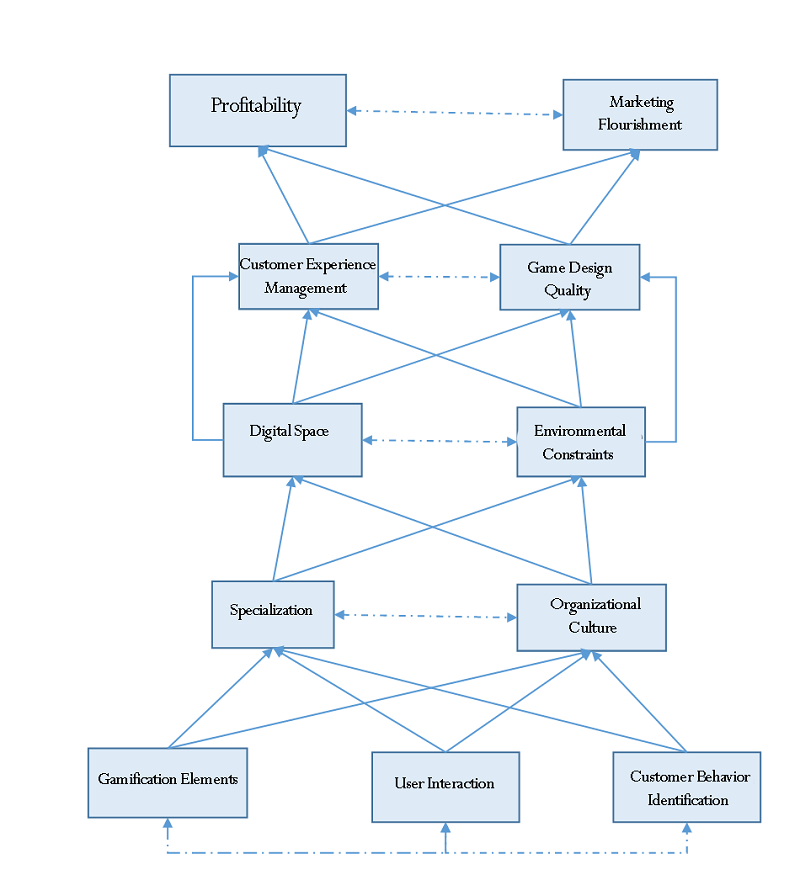Structuring a Gamification Model in Digital Marketing Using Interpretive Structural Modeling (ISM)
Keywords:
Gamification, customer engagement, brand loyalty, digital marketing, sustainability, consumer behavior, marketing strategies, Interpretive Structural Modeling (ISM)Abstract
This study aims to explore the impact of gamification elements on customer engagement, brand loyalty, and sustainable consumer behavior within the context of digital marketing. By utilizing Interpretive Structural Modeling (ISM), the study seeks to identify key factors that influence how gamification enhances the customer experience and promotes positive brand interaction. Additionally, the research aims to understand how gamification can drive sustainable behaviors among consumers, particularly in industries that emphasize eco-friendly practices. The study used a mixed-method approach combining qualitative interviews and quantitative data analysis. A group of experts in marketing and gamification was selected to provide insights into the key factors affecting gamified marketing strategies. Data collection tools included semi-structured interviews and questionnaires. The qualitative data was analyzed using thematic analysis, while the quantitative data was processed through ISM to create a hierarchical model illustrating the relationships between variables. The study focused on variables such as customer behavior identification, user interaction, gamification elements, organizational culture, and digital space. The results indicate that gamification significantly enhances customer engagement by tapping into intrinsic motivations such as achievement, competition, and rewards. Gamified experiences also foster stronger emotional connections between consumers and brands, leading to increased brand loyalty. Additionally, the study found that gamification can promote sustainable consumer behaviors by encouraging eco-friendly actions through rewards and social competition. Poorly designed or manipulative gamified experiences, however, can reduce consumer trust and satisfaction. Gamification is a powerful tool for driving consumer engagement, loyalty, and sustainability in digital marketing. Marketers should focus on designing ethical and intuitive gamified experiences that align with consumer motivations. The findings suggest that gamification not only enhances brand interaction but also contributes to broader social and environmental goals. Future research should explore the long-term effects of gamified marketing strategies.












